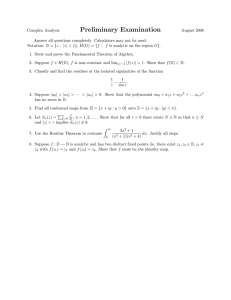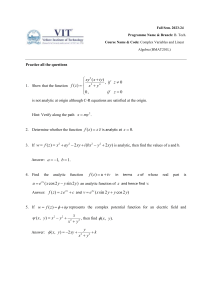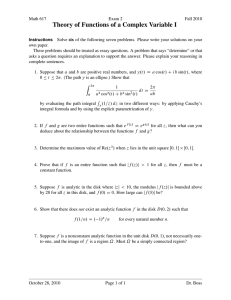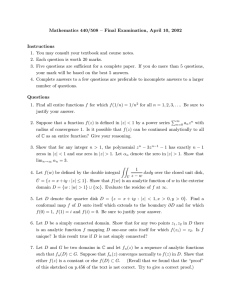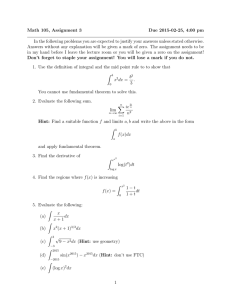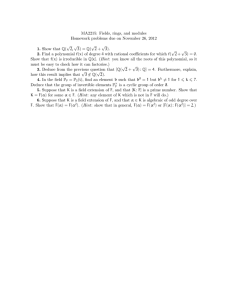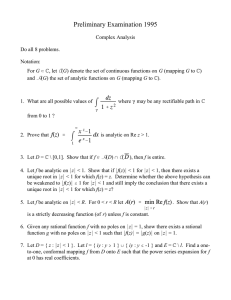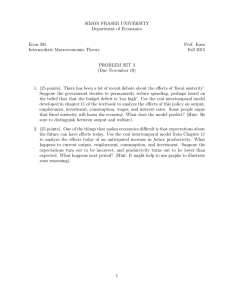Complex Analysis PhD Exam August 1999
advertisement
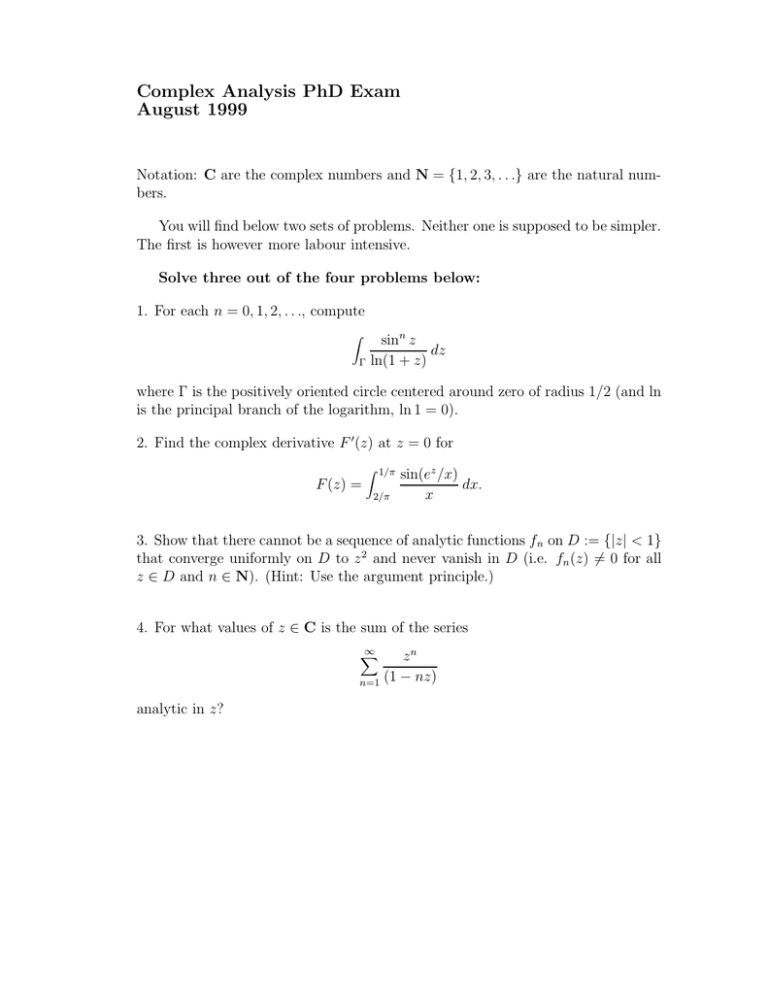
Complex Analysis PhD Exam
August 1999
Notation: C are the complex numbers and N = {1, 2, 3, . . .} are the natural numbers.
You will find below two sets of problems. Neither one is supposed to be simpler.
The first is however more labour intensive.
Solve three out of the four problems below:
1. For each n = 0, 1, 2, . . ., compute
Z
Γ
sinn z
dz
ln(1 + z)
where Γ is the positively oriented circle centered around zero of radius 1/2 (and ln
is the principal branch of the logarithm, ln 1 = 0).
2. Find the complex derivative F 0 (z) at z = 0 for
F (z) =
Z
1/π
2/π
sin(ez /x)
dx.
x
3. Show that there cannot be a sequence of analytic functions fn on D := {|z| < 1}
that converge uniformly on D to z 2 and never vanish in D (i.e. fn (z) 6= 0 for all
z ∈ D and n ∈ N). (Hint: Use the argument principle.)
4. For what values of z ∈ C is the sum of the series
zn
n=1 (1 − nz)
∞
X
analytic in z?
Solve three out of the four problems below:
5. Suppose that f is entire and f 0 (1/n) = sin(1/n) for all n ∈ N. Argue that
f (z) + cos(z) is a constant function.
q
6. Let f : C → C be entire and such that |f (z)| ≤ |z| whenever |z| ≥ 1. Show
that |f (z)| ≤ 1 for all z ∈ C. (Hint: Show first that f is constant.)
7. Suppose that f : C → C is continuous and that, for all z0 , z1 ∈ C and any
piecewise smooth path Γ from z0 to z1 , we have
Z
2
2
f (z) dz = ez1 − ez0 .
Γ
Prove that f is analytic. Find the formula for f .
8.Suppose that u is a non-constant harmonic function on C. Show that {u(z) :
|z| < 1} is open. (Hint: Use the maximum principle.)
